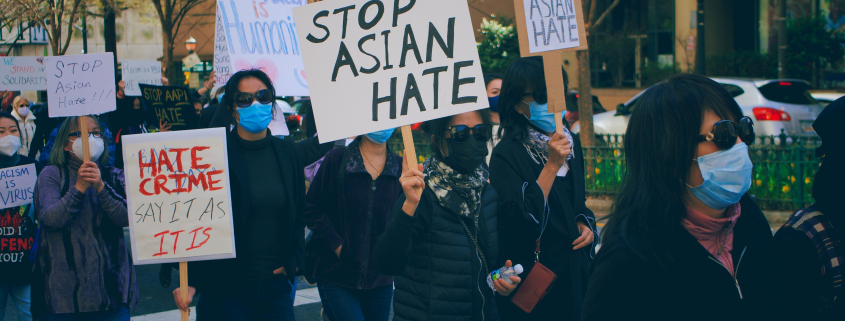Say no to anglicizing Asian names

What’s in a name?
Among all the gifts our parents give us when we are born, our name is perhaps the most unique. In it lies our identity, who we are and where we come from. Our last names are witnesses to and bearers of our ancestry. If a woman gets married to a man, it is a custom that her last name changes from that of her father to that of her husband — a change in her name signals a change in her life.
First names, on the other hand, are usually chosen for aesthetic appeal or with special blessings from the family like popular “American” such as Matthew, Noah, Mary or Ruth.
As a Chinese American, I was given the first name “Yunxi” at birth. It is composed of two separate Chinese characters, “Yun” and “Xi,” each symbolizing beautiful rhythm and flow and my cultural roots in Xi’an, where my family comes from. As early as kindergarten, however, I experienced the embarrassment and shame for my “foreign” name — a feeling that would accompany me for years to come as I still struggle with my cultural identity.
I somehow internalized others’ difficulty in pronouncing or remembering my name as my own fault. Four-year-old me finally couldn’t deal with the social pressure that came from having a different name and asked my parents to give me “an American name.” They translated the first character of my name “Yun” into English, which became Melody, a name I have since used.
The second character of my name, which signified my cultural roots and connected me to my grandparents and great-grandparents, could not get carried over into English. Like the literal erasure of my cultural heritage as I anglicized my name, the Asian part of me slowly eroded away as I grew up in a predominantly white neighborhood.
The painful dilemma which I found myself was aspiring to assimilate or to vanish, which is the precarious position that continues to be faced by many Asian Americans today, who have long dealt with the perpetual foreigner stereotype.
My attitude of spurning my Asian name is not an uncommon one among Asian Americans. When I was ashamed of my Chinese name, I never corrected how English speakers pronounced my last name. I even felt jealous of my Asian peers who had last names that already exist as English words as they are easier for English speakers to pronounce, such as Lee, Fan and Sun. Gradually, like many Asian Americans, I began introducing myself in my anglicized last name — I voluntarily erased a part of my identity.
Many Asian immigrants are assigned English names by their American teachers in English as a Second Language programs. It is a very common, yet underresearched, experience. This is especially common among international Asian students who were not given English names by their parents.
A friend from mainland China told me she got her English name, “Bella,” from the main protagonist in the “Twilight” series. Bella’s experience is far more common than you would think. In assimilating, many Asians are quite literally renamed and given a new identity. Is that the price we must pay for being American? When are we American enough? When do we need to stop proving our Americanness?
As I turned away from my Asian name and identity, I grappled with a myriad of complex and ambiguous emotions including shame, perplexity, resistance and denial, before I finally came to understand it as evidence of my internalized racism. For Asian Americans, the name struggle attests to the broader experience of struggling with belongingness in one’s own skin.
As the coronavirus pandemic revealed the violence and discrimination against Asians in this country, and as newer generations of Asian Americans begin to challenge common Asian stereotypes and combat the long history of racism against Asian Americans, we begin to see a growing number of Asians who refuse to change their name to meet the needs of white culture.
In 2020, Vietnamese student Phuc Bui Diem Nguyen at Laney College in Oakland, Calif., was requested by her professor to anglicize her name because her name reminded him of an insult in English. Nguyen refused and defended her given birth name, and the professor was soon suspended for his racist and xenophobic remark.
After almost two decades of hiding my Chinese name, I am finally reclaiming it, beginning the path of reconnecting with my Chinese culture. We cannot stop the invisibility and discrimination we experience by erasing our Asianness and adopting whiteness. So learn to say my name. Learn to say our names.

